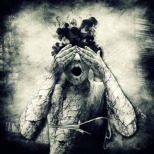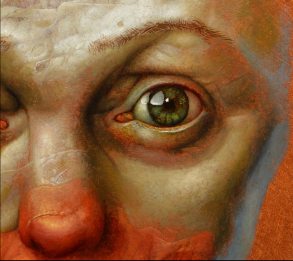




Excerpt from Capitalist Realism: Is there no alternative? –
Reflexive impotence amounts to an unstated worldview amongst the British young, and it has its correlate in widespread pathologies. Many of the teenagers I worked with had mental health problems or learning difficulties. Depression is endemic. It is the condition most dealt with by the National Health Service, and is afflicting people at increasingly younger ages. The number of students who have some variant of dyslexia is astonishing. It is not an exaggeration to say that being a teenager in late capitalist Britain is now close to being reclassified as a sickness. This pathologization already forecloses any possibility of politicization. By privatizing these problems – treating them as if they were caused only by chemical imbalances in the individual’s neurology and/ or by their family background – any question of social systemic causation is ruled out.
Many of the teenage students I encountered seemed to be in a state of what I would call depressive hedonia. Depression is usually characterized as a state of anhedonia, but the condition I’m referring to is constituted not by an inability to get pleasure so much as it is by an inability to do anything else except pursue pleasure. There is a sense that ‘something is missing’ – but no appreciation that this mysterious, missing enjoyment can only be accessed beyond the pleasure principle. In large part this is a consequence of students’ ambiguous structural position, stranded between their old role as subjects of disciplinary institutions and their new status as consumers of services. In his crucial essay ‘Postscript on Societies of Control’, Deleuze distinguishes between the disciplinary societies described by Foucault, which were organized around the enclosed spaces of the factory, the school and the prison, and the new control societies, in which all institutions are embedded in a dispersed corporation.1
- Fisher, Mark. Capitalist Realism: Is there no alternative? (Zero Books) (pp. 21-22). NBN_Mobi_Kindle. Kindle Edition.

Very resonant passages about the immersive ambient affect of late capitalism. Very sad to hear the news about Mark Fisher.
LikeLike
Yeah, from what I’m reading from others he was a manic-depressive at a low point from which he just couldn’t pull through this time. It reminds me of another good hearted being of our era: David Foster Wallace. I’ve not felt such intensity as this, so must realize that I can’t truly speak to it. All the books in the world on such ailments only explain the intellectual position, rather than what people suffer through which must be dreadful beyond belief. Sad.
In my own life the dark cycles come and go, and when they come I return to the comic worlds of laughter to assuage the pain of such suffering doubts and mental anguish. I read Cervantes Don Quixote and Aristophanes plays, along with Moliere’s and Shakespeare’s comedies. Listen to stand-up comedians and generally walk away from the dark thoughts that send me down the nihilist pipe and death-spin. It’s not for everyone, but it’s my only recourse. I know I have a dark pessimistic side to my mind that tends to reinforce itself with the political and social malfeasance I see around me, but dwelling on it too long can send you into a state of becoming which can act like a strange attractor pulling you toward an abyss and sink hole. It’s not good to go there.
I’ve often thought life is a constant war against gravitas – the inertia and entropic effect of gravity on our planet. We struggle against it daily in our cycles of sleep and waking, we feel its power against us as we rise in the morning, the aches and kinks in muscle and bone (especially at age 65!) begin to repeat there impossible gestures to which we exercise, stretch, walk, etc. Yet, it’s a cycle that daily gets more difficult to bare and confront. I imagine some people weigh the options and decide its just not worth it anymore. The other side is not just the physical pain of gravity’s well, but the social and political wells of gravity around us that seem to accumulate such dark and disturbing, hate ridden abysses. The struggle against these powers in high places is a life-long task, and one that as well takes its toll.
I even return to old Emerson at times. I just wish I could always follow such advice:
“I find the gayest castles in the air that were ever piled, far better for comfort and for use, than the dungeons in the air that are daily dug and caverned out by grumbling, discontented people. I know those miserable fellows, and I hate them, who see a black star always riding through the light and colored clouds in the sky overhead: waves of light pass over and hide it for a moment, but the black star keeps fast in the zenith. But power dwells with cheerfulness; hope puts us in a working mood, whilst despair is no muse, and untunes the active powers. A man should make life and Nature happier to us, or he had better never been born.”
LikeLiked by 2 people